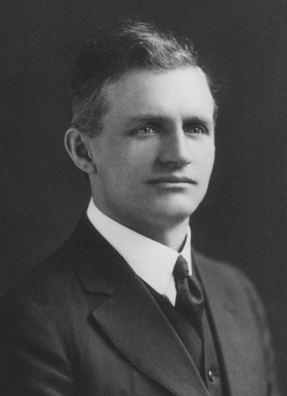Socialist Party of America
Socialist Party of America
The Socialist Party of America (SPA) was a multi-tendency democratic socialist and social democratic political party in the United States, formed in 1901 by a merger between the Social Democratic Party of America and a dissident faction of the Socialist Labor Party of America. The SPA was a major political force in the early 20th century, advocating for workers' rights, social justice, and the establishment of a socialist economy.
History[edit | edit source]
The Socialist Party of America was established in 1901, with prominent leaders such as Eugene V. Debs, Morris Hillquit, and Victor L. Berger. The party quickly gained support among labor unions, intellectuals, and various social reform movements. The SPA's platform included calls for public ownership of major industries, social welfare programs, and labor rights.
Early Years[edit | edit source]
In its early years, the SPA focused on building a strong base among the working class and promoting socialist ideas through education and political campaigns. The party's newspaper, The Appeal to Reason, played a significant role in spreading its message.
Electoral Success[edit | edit source]
The SPA achieved notable electoral success in the 1910s, with several members elected to local and state offices. Victor L. Berger became the first socialist elected to the United States House of Representatives in 1910. Eugene V. Debs ran for president five times as the SPA candidate, receiving nearly a million votes in the 1920 election while imprisoned for his opposition to World War I.
Decline and Split[edit | edit source]
The party faced internal divisions and external pressures during the 1920s and 1930s. The rise of the Communist Party USA and the New Deal policies of the Franklin D. Roosevelt administration drew support away from the SPA. In 1936, the party split, with the formation of the Socialist Party USA and the Social Democratic Federation.
Legacy[edit | edit source]
Despite its decline, the SPA left a lasting impact on American politics and labor movements. Many of its ideas, such as social security, labor rights, and public healthcare, were later adopted by mainstream political parties.
Ideology[edit | edit source]
The Socialist Party of America advocated for a democratic socialist society, emphasizing the need for public ownership of key industries, social welfare programs, and the protection of workers' rights. The party was committed to achieving these goals through democratic means, rejecting violent revolution.
Notable Members[edit | edit source]
Related Pages[edit | edit source]
- Social Democratic Party of America
- Socialist Labor Party of America
- Communist Party USA
- New Deal
- Socialist Party USA
- Social Democratic Federation
See Also[edit | edit source]
Search WikiMD
Ad.Tired of being Overweight? Try W8MD's physician weight loss program.
Semaglutide (Ozempic / Wegovy and Tirzepatide (Mounjaro / Zepbound) available.
Advertise on WikiMD
|
WikiMD's Wellness Encyclopedia |
| Let Food Be Thy Medicine Medicine Thy Food - Hippocrates |
Translate this page: - East Asian
中文,
日本,
한국어,
South Asian
हिन्दी,
தமிழ்,
తెలుగు,
Urdu,
ಕನ್ನಡ,
Southeast Asian
Indonesian,
Vietnamese,
Thai,
မြန်မာဘာသာ,
বাংলা
European
español,
Deutsch,
français,
Greek,
português do Brasil,
polski,
română,
русский,
Nederlands,
norsk,
svenska,
suomi,
Italian
Middle Eastern & African
عربى,
Turkish,
Persian,
Hebrew,
Afrikaans,
isiZulu,
Kiswahili,
Other
Bulgarian,
Hungarian,
Czech,
Swedish,
മലയാളം,
मराठी,
ਪੰਜਾਬੀ,
ગુજરાતી,
Portuguese,
Ukrainian
Medical Disclaimer: WikiMD is not a substitute for professional medical advice. The information on WikiMD is provided as an information resource only, may be incorrect, outdated or misleading, and is not to be used or relied on for any diagnostic or treatment purposes. Please consult your health care provider before making any healthcare decisions or for guidance about a specific medical condition. WikiMD expressly disclaims responsibility, and shall have no liability, for any damages, loss, injury, or liability whatsoever suffered as a result of your reliance on the information contained in this site. By visiting this site you agree to the foregoing terms and conditions, which may from time to time be changed or supplemented by WikiMD. If you do not agree to the foregoing terms and conditions, you should not enter or use this site. See full disclaimer.
Credits:Most images are courtesy of Wikimedia commons, and templates, categories Wikipedia, licensed under CC BY SA or similar.
Contributors: Prab R. Tumpati, MD







